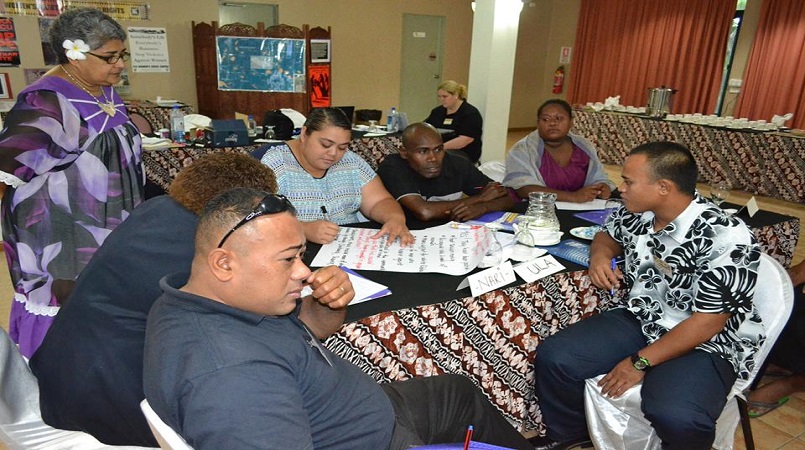
Police officers from around the Pacific attending a workshop on violence against women in Nadi have been undergoing an intense learning process on how gender inequality pervades all aspects of society and denies women the full enjoyment of their human rig
The workshop funded by the Australian Federal Police (AFP) and facilitated by the Fiji Women’s Crisis Centre (FWCC) focused on how gender relations had changed in Pacific communities but also on the many barriers that remained.
The participants shared the experiences in their police stations and communities about the kinds of violence and barriers women continue to face. Some participants continued to believe that women brought the violence on themselves by nagging or not obeying their husbands.
These kinds of attitudes prevent police officers from seeing violence against women as a crime and a violation of human rights.
As a result they do not take women’s complaints seriously, sometimes sending the woman back to her fate at the hands of a violent partner.
Officers need to investigate the crime and not bring their personal prejudices, feelings and beliefs into their investigations.
Lead facilitator, Shamima Ali, the Coordinator of the Fiji Women’s Crisis Centre, helped the police officers see the importance of thoroughly understanding gender dynamics and how men use their power and privilege to keep women subjugated and stuck in violent relationships.
While there has been improved legislation and decreased tolerance to violence against women, there are still barriers such as religion and culture which prevents women from enjoying their full human rights.
This inequality is also manifested in the double standards applied to women and men for doing the same things. For example, men are not stigmatised for drinking, having affairs or taking a rest in the middle of the day.
If a woman was to go out for a drink and come back drunk, she would face a beating from her partner. However, if her partner were to do the same, he did not have to fear the same beating and often would use alcohol as an excuse to vent his frustrations by beating her up.
If women were to have an affair she was automatically condemned and labelled a “bad woman” and many times would be assaulted severely if the affair were to be discovered. The same does not happen to men who get off lightly and would not suffer the same kind of stigma for conducting an affair.
The inequality faced by women also manifests itself in the sporting arena where not many women reach the top echelons of sport because of the control exerted over their lives.
For example, a young woman who may reach advanced levels in a particular sport would more often than not, drop out of that sport once she formed an intimate relationship because of pressure from her partner. This is compared to a man who has the freedom to pursue a successful sporting career with lots of family and community support.
This inequality then becomes institutionalised in the sporting arena when governments and sporting bodies focus the majority of funding and resources on men’s sport to the detriment of women’s sports.
Participants are from Cook Islands, Fiji, Kiribati, Nauru, Niue, Papua New Guinea, Samoa, Solomon Islands, Tonga, Tuvalu and Vanuatu.
The workshop began on Monday and will end on 18 November.
